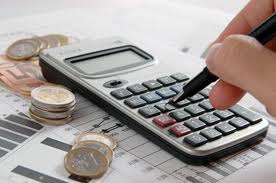Cut Utility Costs – Improve Your Credit
August 2, 2012 | Posted by Blair Warner | 2 CommentsFirst, Reevaluate your monthly electric bills. Read through your bills and understand what all the charges are for. Start by determining how much electricity you use. Understand what each itemized fee is, and even look at the kilowatt usage. Compare each month and season’s usage, and use the monthly usage from the previous 12 months to determine the approximate value. (Follow the same process for your water bill, telephone bill and internet bill. Some people have an HOA bill as well.)
Consider the amount of energy you use at night. Many people burn a great deal of energy at night, leaving lights on and appliances running while they sleep. Make sure your T.V., computers, and any unused ceiling fans are turned off, as well as unplug gadgets such as cellphone and radio devices, as they can suck energy. (It’s not good for your device batteries anyway, to keep charging after a full charge).
Change your lighting. If you use a particular light more than 30 minutes a day it is economically worth it to replace the bulb with a high-quality LED or compact flourescent bulb to save money.
Pay attention to heating and air-conditioning. The heating and air-conditioning systems probably account for the largest portion of your monthly electric bill. There are several good tips you can follow to save electrical use for these items.
Decrease energy use by your refrigerator and freezer. They use a great deal of energy. Of course, you can’t very well turn off the refrigerator. There are a few things you can do. Make sure the door is closed when not in use, and check all the sealing gaskets around the doors to make sure they seal well. Lastly, make sure there is plenty of ventilation by leaving plenty of space between the refrigerator and the wall.
Use the oven and stove in ways that uses less energy. When using the stove, use the right pots for the right burner size. Turn the stove off five minutes before the cooking time ends. Keep the oven door closed as much as possible and try not to preheat it if possible. Finally, turn off the oven 10 minutes before the food is ready.
Use energy-efficient appliances. Technology has come a long way in developing energy-efficient appliances, especially for the most often used ones.
As a last tip, make sure the washing machine and dish washer are as full as possible before each use so as to reduce the number of times they are used. Furthermore, in most cases, it is ok to use cold water which will reduce energy use more than you would think.
As David Horowitz says “Being energy-efficient is not only good for the environment, but is one of the most important ways in which you can cut costs.”
I know this is not your typical blog topic you see on a credit repair and credit counseling website, but I hope you received some great ideas on how to save money.
By Blair Warner













